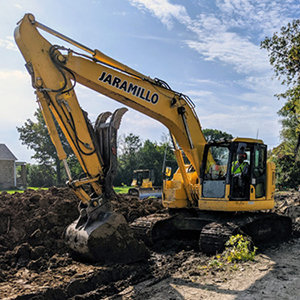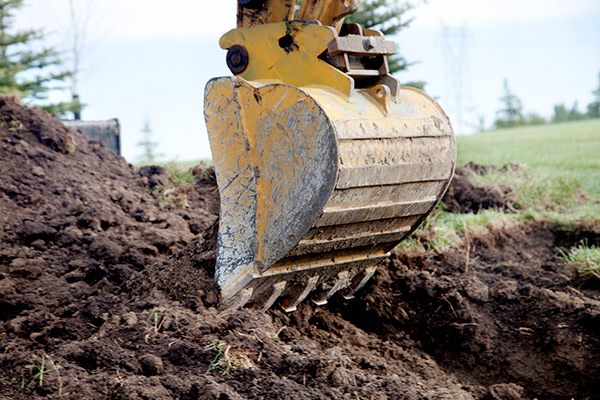Lancaster Excavation - Professional Excavation Providers in Lancaster, OH
Lancaster Excavation - Professional Excavation Providers in Lancaster, OH
Blog Article
Comprehensive Excavation Techniques: Mastering the Basics for Success
In the realm of construction and civil engineering, the importance of effective excavation techniques can not be overemphasized. The mindful preparation, specific execution, and precise interest to information called for in excavation tasks demand a comprehensive technique that includes various fundamental facets. From initial dirt evaluation to the implementation of safety and security procedures and normal development surveillance, mastering these core components is important for attaining success in any excavation endeavor. However, the true mastery lies not simply in understanding these fundamentals however in flawlessly incorporating them to browse the complexities of excavation projects with skill.
Recognizing Excavation Task Planning

Successful excavation projects are improved the structure of comprehensive and meticulous planning. The first stage of any excavation project is the drawing board, where vital decisions are made that can substantially affect the end result of the project. Throughout this phase, it is important to gather all pertinent information about the site, including topographical studies, dirt make-up, and any kind of prospective hazards that might exist. Understanding the project range, timeline, and budget plan constraints is critical for producing an extensive excavation plan that makes certain the task's success.
One trick facet of excavation job planning is the advancement of a detailed timeline that describes the sequence of due dates, activities, and turning points. This timeline works as a roadmap for the project team, permitting them to track development and make needed modifications to make certain the job remains on timetable. In addition, a well-defined spending plan that represents all costs, consisting of equipment rental, labor expenses, and products, is important for preventing price overruns and delays. By very carefully taking into consideration all these elements during the preparation phase, excavation tasks can be carried out efficiently and properly, causing effective outcomes.
Soil Analysis and Site Examination
Conducting detailed soil evaluation and website assessment is an essential action in the preparation phase of any excavation job. Soil evaluation entails figuring out the composition, framework, and homes of the dirt at the excavation website. This details is crucial for recognizing the dirt's bearing capacity, moisture content, and capacity for erosion, which are essential consider establishing the excavation techniques and devices needed for the project.
Site analysis exceeds soil analysis and encompasses a wider evaluation of the overall website problems. This assessment consists of determining any prospective threats, such as below ground utilities, environmental problems, or unstable surface, that could influence the excavation process. By completely examining the site, task supervisors can establish reliable excavation approaches that focus on safety and security, effectiveness, and environmental management.
Using innovative innovations like ground-penetrating radar, dirt tasting, and drone studies can boost the accuracy and performance of dirt analysis and website examination. Spending time and resources in these preliminary steps can ultimately conserve time and prevent expensive hold-ups or over here complications during the excavation process.
Devices Option and Usage
Reliable excavation jobs count greatly on strategic devices option and utilization to make sure optimum performance and productivity. Choosing the review right tools for the job is critical in taking full advantage of effectiveness and decreasing downtime. Factors such as the kind of soil, depth of excavation, and job extent play a considerable function in determining one of the most ideal equipment for the job handy.

In addition to picking the proper devices, proper use is crucial to job success. Operators needs to be trained to deal with the equipment securely and effectively - dump truck companies in ohio. Routine maintenance checks and prompt repairs aid protect against malfunctions and make certain constant efficiency throughout the project
Security Steps and Rules Conformity
In the realm of excavation projects, focusing on security steps and compliance with laws is extremely important to guaranteeing a legally audio and secure functional environment. Safety actions encompass a series of practices, including performing extensive site assessments, applying appropriate signs and obstacles, and giving ample safety training for all personnel associated with the excavation process. Adherence to regulations, such as OSHA requirements in the United States, makes sure that the excavation project fulfills the necessary requirements to shield employees, bystanders, and the surrounding setting.

Tracking Development and Adjusting Techniques
Exactly how can forecast supervisors efficiently track the improvement of excavation projects and adjust their techniques as necessary to optimize end results? Tracking progression is important for making certain that excavation tasks stay on track and meet deadlines.

Conclusion
Finally, grasping the basics of detailed excavation approaches is essential for the success of any project. By comprehending project preparation, assessing soil and site problems, choosing suitable equipment, abiding with safety policies, and keeping an eye on progress, project managers can make sure a smooth and reliable excavation process. Implementing these techniques will certainly cause successful end results and lessen potential threats or troubles during the excavation project.
The initial stage of any type of excavation job is the planning stage, where important decisions are made that can considerably impact the end result of the task. Understanding the job extent, spending plan, and timeline restrictions is essential for creating a comprehensive excavation plan that makes certain the task's success.
Just how can predict managers effectively track the innovation of excavation projects and adjust their methods appropriately to optimize end results? By very closely keeping track of development and being willing to adjust strategies, project managers can improve the total success of excavation tasks.
By understanding project planning, evaluating dirt and site problems, selecting suitable devices, complying with safety and security guidelines, and keeping track of development, job managers can make certain a efficient and smooth excavation procedure.
Report this page